Life as a 70's feminist rock star catches up with Edinburgh church organist Marion
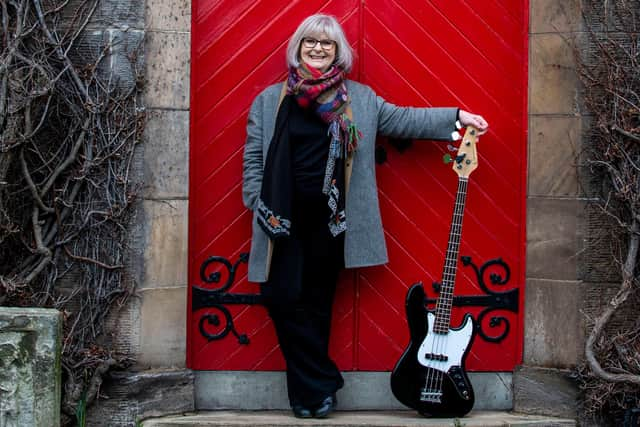

In the 1970's, Marion, Stockbridge Parish Church's much loved organist, was the singer in a rock group that would fragment to give birth to the Stepney Sisters, an all female band at the vanguard of the feminist movement. Nearly five decades on, that band have just signed their first record deal, the latest chapter in an adventure that started when Marion, now a youthful 70-year-old, was at university, writes Liam Rudden.
She recalls, "At York University, I was in a band called Expensive. There were three women singers while the men played the instruments. When we came to London in 1975 the boys diversified into contemporary jazz, we girls wanted to continue singing together so we decided to take up instruments ourselves."
Advertisement
Hide AdAdvertisement
Hide AdMarion picked up her bass, and that was the genesis of the Stepney Sisters.
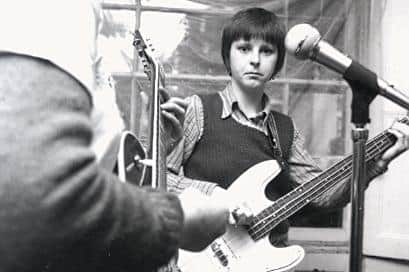

Originally from Huntingdon, Marion, also known as Benni, a nickname given to her by her father, came to the Capital in the Eighties, “I was living in London, met a Scotsman, came to Edinburgh and got married and I have been here ever since. I have Scottish ancestry so I always thought I would come and live in Scotland," she reveals.
Home today is Liberton in 1975 it was Stepney in London, hence the band name, where it didn't take long for the Sisters to attract attention from both the music business and within the burgeoning feminist movement.
"We were all feminists realising we had to start doing things for ourselves. If we wanted a band we could have one, we didn't have to wait for someone to ask us to be singers in theirs. We could be autonomous," says Marion, adding that the 'politically charged pop-soul' they performed combined with that fact women were so underrepresented in bands at the time meant they were often given a rough ride.
Advertisement
Hide AdAdvertisement
Hide AdShe explains, "As a group of women playing in a band together, we were the exception rather than the rule.
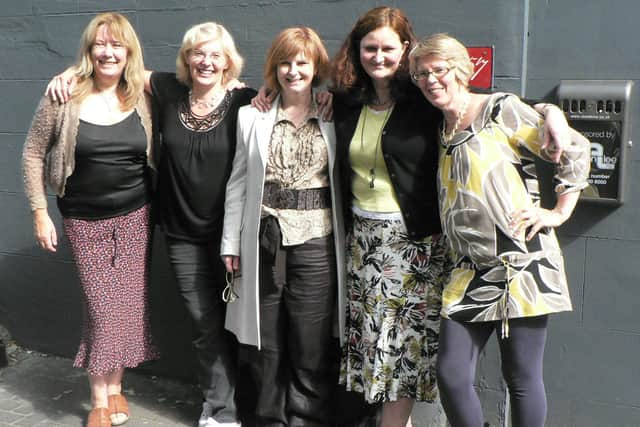

"We did get heckled. I remember we turned up as support act for Desmond Dekker and he didn't show. The crowd got a bit hostile, yelling that we were 'middle-class prudes'. We attracted a fair amount of ridicule because people weren't use to seeing women play."
Playing alternative venues and benefits for causes such as squatters' rights, women's issues and Women's Liberation Conferences, they soon proved their credentials... "But we also played pubs, and in our local in Stepney we became part of the furniture," Marion adds proudly.
The band’s uniform of scruffy dungarees and cropped hair also made a statement.
Advertisement
Hide AdAdvertisement
Hide Ad"We wanted to be seen as normal people. We even turned down an offer from Micky Most, a big producer of the time, because we knew he would try to turn us into sexy, chick symbols, changing the way we dressed and performed.
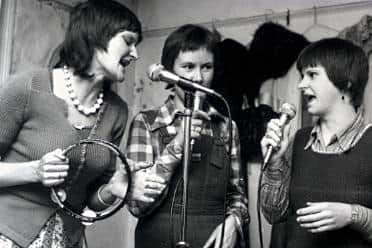

"We looked the way we looked because that was how we looked in real life. When I look back at the pictures of me in my twenties, I look like a 12-year-old boy," she laughs, "But the look was a sort of uniform among a slightly alternative, left-leaning group of people... we didn't really want to have to perform in sequined mini-skirts."
The Stepney Sisters - Marion with Caroline Gilfillan (singer), Ruthie Smith (sax), Susy Hogarth (drums) and Nony Ardill (guitar) - reunited in 2009 as they all approached their 60s, it turned out to be a landmark occassion.
"Susy said, 'I'd really like to record our songs.' We'd never done that because studio time was very expensive in the Seventies. So we went into a studio and recorded all our songs on an album. It was really just for friends and family. Recently, the guitarist's daughter, who is in a punk band called Dream Nails, played our album to her record producer. He really liked us and signed us up. Now, 46 years after the songs were written, we have just signed a record deal. It validates what we were trying to achieve and shows our songs have stood the test of time,” says Marion, who also composed the music for the BBC children's series Pigeon Street.
Advertisement
Hide AdAdvertisement
Hide AdProud of the part the band played in the feminist movement, the bassist continues to play her part today.
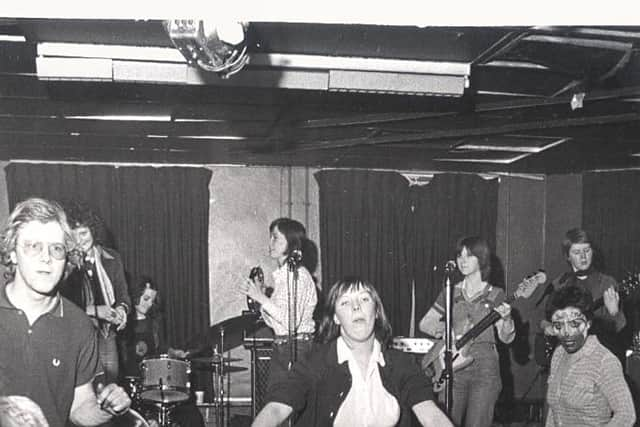

"There are still many things we were trying to change that still need changing, even though a lot has changed for the better; for example, in 1974 I tried to to buy a television on hire purchase. Even though I was a trained pianist working with London Contemporary Dance Theatre at the time, I wasn't allowed to get one without a father or husband signing a guarantee. Then, as a single woman you weren't allowed to take on a hire purchase agreement or take out a mortgage. That has changed but we still have a lot to do. It doesn't stop. I shan't be happy until there have been at least 20 women moderators of the Church of Scotland and 20 female Archbishops of Canterbury and all the huge inequalities that still exist in the world regarding gender have been addressed."
Right now, Marion is involved in a campaign by the Society of Women Organists. "We are campaigning for adjustable organ benches to be available in all places where there are organs,” she explains. “The average height of a woman is 5ft 3, for men it's 5ft 9. Many benches are made at a fixed height meaning many women can't reach the pedals. Things like that, everyday gender inequalities still make me furious."
And when the local congregation see Marion as she was in the Seventies, all short hair and dungarees, what might they think?
"They'll laugh and think it's hilarious," she beams.
Advertisement
Hide AdAdvertisement
Hide AdThe album Stepney Sisters is now available on Alcopop! via Spotify
A message from the Editor:
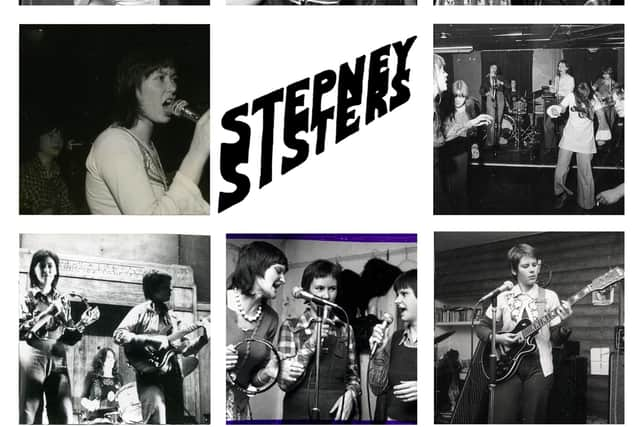

Thank you for reading this article. We're more reliant on your support than ever as the shift in consumer habits brought about by coronavirus impacts our advertisers.
If you haven't already, please consider supporting our trusted, fact-checked journalism by taking out a digital subscription
Comment Guidelines
National World encourages reader discussion on our stories. User feedback, insights and back-and-forth exchanges add a rich layer of context to reporting. Please review our Community Guidelines before commenting.